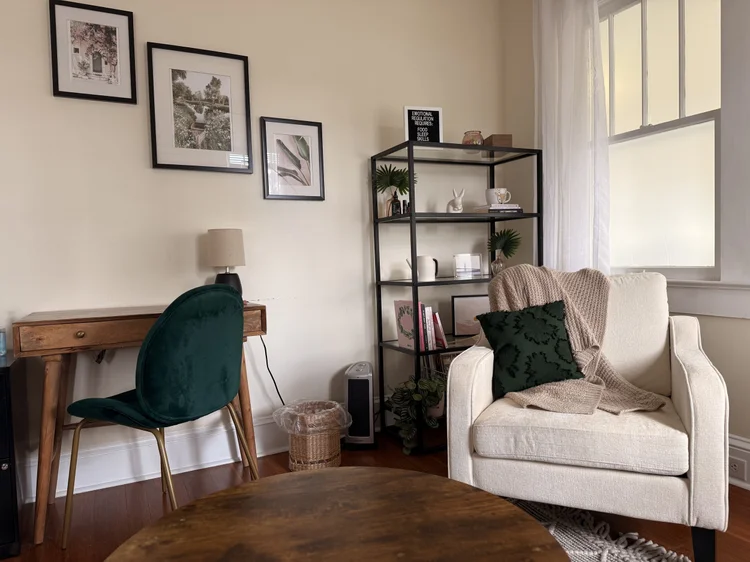Group therapy Success Stories: How Shared Healing Creates Stronger Coping Networks
Why Focusing On Mental Health Via Therapy and Therapy Is Important for Well-Being
Psychological health and wellness plays a crucial role in total wellness. Several individuals ignore the significance of dealing with emotional and emotional obstacles. Therapy and treatment give crucial support, cultivating self-discovery and resilience. These specialist solutions can gear up people with reliable coping techniques. Mistaken beliefs typically hinder individuals's willingness to look for help. Comprehending the complexities of psychological wellness treatment could disclose transformative insights. What obstacles might individuals encounter in prioritizing their psychological wellness?
Recognizing Mental Health And Wellness and Its Importance
Mental health acts as a foundation of overall well-being, influencing just how people believe, feel, and act in life. It includes emotional, emotional, and social factors, influencing relationships, job performance, and coping systems. Understanding psychological wellness is necessary, as it helps individuals recognize their psychological states and the value of seeking aid when needed.An individual's mental health and wellness can rise and fall based on different conditions, including stress, way of life, and injury options. Prioritizing psychological health fosters resilience, allowing individuals to face obstacles and adapt to alter better. On top of that, healthy and balanced frame of minds promote physical health, as they are adjoined; bad mental health and wellness can cause physical conditions and vice versa.Ultimately, acknowledging the significance of psychological wellness urges open discussion and minimizes preconception, leading the way for effective therapy and therapy, which can greatly boost one's top quality of life.
Typical False Impressions Concerning Counseling and Therapy
Several people hold false impressions about counseling and treatment, often viewing them via a lens of stereotypes and false information. A widespread myth is that treatment is just for those with serious mental disorder, neglecting the reality that it can profit anyone seeking personal growth or psychological support. Another misconception is that specialists merely use recommendations, whereas their role is to assist in self-discovery and coping approaches. Numerous likewise think that treatment calls for a lasting commitment, leading to the presumption that it's not a viable option for those with active lives. Furthermore, some individuals are afraid judgment, wrongly thinking therapists will slam their ideas and feelings. The idea that treatment is an indication of weakness can prevent individuals from seeking help, even though it reflects an aggressive technique to wellness. Attending to these misconceptions is important for promoting a more educated point of view on the value of therapy and treatment.
The Benefits of Seeking Professional Assistance
Looking for expert assistance can greatly improve a person's general wellness, specifically when managing life's obstacles. Involving with a certified therapist or therapist offers a secure room for individuals to share their thoughts and sensations without judgment. This restorative environment cultivates self-exploration, allowing clients to get insight right into their behaviors and emotions.Moreover, specialist advice gears up individuals with reliable coping methods customized to their distinct scenarios, boosting durability against stressors. It can also help with personal growth by aiding people set and attain meaningful goals.Additionally, looking for help can reduce signs of mental health and wellness conditions, leading to boosted psychological law and a higher feeling of control over one's life. Ultimately, the benefits of expert assistance prolong beyond instant relief; they lay the foundation for long-lasting psychological wellness and overall life satisfaction, advertising a healthier, extra satisfying existence.

Different Types of Therapy and Counseling Approaches
Countless therapy and therapy strategies exist, each tailored to attend to certain mental health needs and choices. Cognitive Behavior Modification (CBT) concentrates on identifying and transforming unfavorable idea patterns, making it effective for anxiousness and anxiety. Dialectical Habits Treatment (DBT) combines CBT with mindfulness methods, especially valuable for individuals dealing with emotion regulation.Psychodynamic therapy explores unconscious processes and previous experiences, intending to reveal ingrained feelings. Humanistic treatments, such as Person-Centered Therapy, highlight personal development and self-acceptance, promoting a supportive environment for clients.Family treatment addresses characteristics within domestic relationships, advertising healthier communication and understanding among participants. Additionally, trauma-focused therapies, such as EMDR, specifically target trauma-related signs and symptoms and experiences. Each approach offers special strategies and insights, allowing individuals to discover a technique that resonates with their personal journey toward psychological well-being.
How to Choose the Right Therapist for You
How can one discover a therapist that truly lines up with their requirements? The process begins with self-reflection, determining personal goals and choices pertaining to treatment. Individuals must consider aspects such as the specialist's specialization, treatment methods, and whether they really feel comfortable with the therapist's gender and social background.Researching potential therapists can include reviewing reviews, checking credentials, and seeking suggestions from relied on sources. It's important to examine whether a specialist's viewpoint aligns with one's values.Many therapists supply initial examinations, providing a possibility to assess compatibility. Throughout this session, people can inquire regarding the specialist's experience, techniques, and success stories.Ultimately, finding the best therapist is an individual trip that might need meeting with several specialists prior to finding the best fit. Prioritizing this positioning can improve the performance of therapy and promote a helpful therapeutic relationship vital for recovery and growth.
Getting Over Obstacles to Seeking Aid
Finding the best specialist is simply one action in the trip toward psychological well-being; check here nonetheless, lots of people deal with challenges that can hinder their determination to seek aid. Preconception bordering mental wellness remains a substantial barrier, typically resulting in sensations of shame or worry of judgment. Furthermore, lack of recognition about mental wellness concerns can protect against individuals from recognizing their requirement for support. Accessibility additionally positions challenges; economic restrictions and restricted accessibility of solutions can deter those in need from pursuing therapy. Cultural differences additionally complicate this issue, as some might feel uneasy looking for help as a result of varying ideas about psychological health and wellness. Additionally, people may battle with the emotional vulnerability required to open in treatment. Addressing these obstacles is crucial, as overcoming them can result in a higher acceptance of looking for aid, inevitably promoting a healthier society that prioritizes psychological health.
Constructing a Sustainable Mental Wellness Regimen
Developing a lasting mental wellness routine is necessary for lasting well-being. Key components consist of day-to-day mindfulness methods, routine treatment sessions, and healthy lifestyle choices. With each other, these components can develop a well balanced approach to managing mental wellness effectively.

Daily Mindfulness Practices
What actions can people require to incorporate everyday mindfulness methods into their routines? Setting aside a details time each day for mindfulness can establish consistency. This could entail morning reflection, mindful breathing workouts, or yoga exercise. People can likewise incorporate mindfulness into day-to-day activities, such as enjoying meals or taking conscious strolls, which boosts present-moment recognition. Developing a committed area for mindfulness methods can further urge engagement. Utilizing applications or assisted sessions can provide structure and assistance. Furthermore, journaling feelings and ideas can cultivate self-reflection and psychological clearness. Ultimately, practicing thankfulness every day can move emphasis toward favorable facets of life, reinforcing overall mental health. Adopting these practices can aid individuals build a lasting mental health routine.
Normal Therapy Sessions
Incorporating mindfulness practices into life can greatly boost psychological health, but routine therapy sessions offer an organized method to attending to much deeper emotional and psychological challenges. These sessions provide people with a secure area to discover their sensations and thoughts, fostering self-awareness and individual development. Routine presence can assist establish a routine that reinforces mental health and wellness priorities, permitting clients to refine experiences and develop dealing techniques. Furthermore, constant engagement with a therapist can lead to improved psychological regulation and problem-solving skills. Gradually, this dedication to therapy not only supports instant mental wellness needs however likewise builds resilience, outfitting individuals with tools to browse life's obstacles effectively. Uniformity in treatment is crucial to growing long-term favorable modification.
Healthy And Balanced Way Of Living Choices
A variety of healthy lifestyle selections can significantly add to developing a lasting mental wellness regimen (Mental health counseling). Participating in routine physical activity, such as strolling or yoga, advertises the release of endorphins, enhancing mood and minimizing anxiety. Balanced nutrition, consisting of fruits, veggies, and entire grains, sustains brain feature and psychological security. Appropriate sleep is vital, as it boosts cognitive procedures and emotional policy. Mindfulness techniques, such as meditation or deep-breathing workouts, can help individuals manage tension efficiently. Additionally, developing solid social connections fosters a feeling of belonging and support. By incorporating these way of living options, individuals can develop a strong structure for psychological health, enabling them to browse life's obstacles with resilience and clarity

Regularly Asked Concerns
How Can I Inform if I Required Therapy?
Identifying the requirement for therapy frequently involves identifying consistent sensations of stress and anxiety, stress and anxiety, or despair. Additionally, trouble in handling everyday jobs, partnership challenges, or a feeling of being bewildered might signal the demand for expert assistance.
Is Treatment Reliable for Everyone?
Therapy may not be widely reliable, as specific experiences and needs vary. While many locate significant alleviation and improvement, others may battle to get in touch with approaches or therapists, impacting general results and contentment with the procedure.
What Should I Anticipate During My First Session?
During the initial session, individuals can anticipate to discuss their concerns, full initial analyses, and establish goals (Therapy near me). The therapist will create a risk-free area, cultivating open interaction to develop relationship and recognize the customer's needs
For How Long Does Therapy Typically Last?
Therapy period varies commonly, usually lasting from a couple of sessions to a number of months or years. Aspects such as private needs, objectives, and progress affect the length, with many clients going to bi-weekly or regular sessions.
Can I Change Therapists if It's Not an Excellent Fit?
When people feel their existing therapist isn't a good fit, changing specialists is a typical method. It is vital for customers to seek a healing relationship that fosters count on, understanding, and reliable communication for ideal progression. Recognizing psychological health and wellness is necessary, as it assists individuals recognize their emotional states and the relevance of looking for help when needed.A person's psychological wellness can change based on various situations, including trauma, way of living, and stress options. Countless therapy and therapy methods exist, each customized to attend to certain psychological health and wellness requirements and preferences. Dialectical Actions Treatment (DBT) integrates CBT with mindfulness strategies, particularly valuable for people battling with emotion regulation.Psychodynamic therapy explores past experiences and subconscious procedures, intending to reveal ingrained feelings. Humanistic therapies, such as Person-Centered Therapy, highlight personal growth and self-acceptance, fostering a helpful setting for clients.Family therapy addresses characteristics within domestic partnerships, promoting healthier communication and understanding among participants. Over time, this dedication to therapy not just supports immediate psychological wellness demands however likewise develops durability, equipping people with devices to browse life's obstacles efficiently.